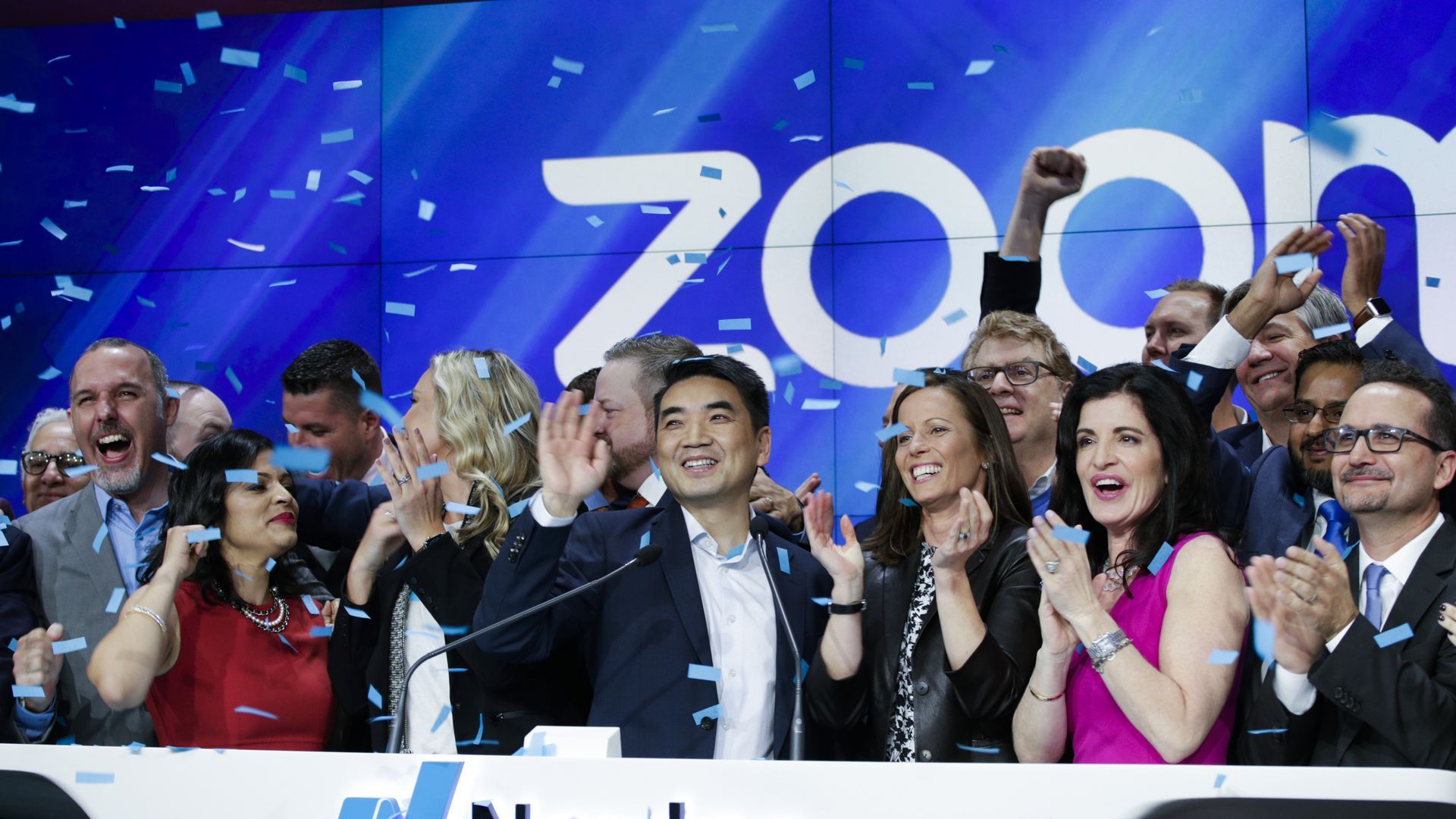Videoconferencing startup Zoom's happy IPO
Add Axios as your preferred source to
see more of our stories on Google.

Zoom staff celebrating IPO. Photo: Kena Betancur/Getty Images
Eric Yuan helped shatter one of the weirdest corporate taboos on Thursday, becoming one of the first Chinese CEO of a major U.S. publicly-listed corporation. (Indian CEOs, by contrast, including Microsoft's Satya Nadella, Pepsi's Indra Nooyi, and Citi's Vikram Pandit, have been highly visible for years.)
The backdrop: Yuan's triumph came in the highly competitive world of videoconferencing. It's a world he knew very well when he founded Zoom in 2011: He had been the head of engineering at one of Zoom's competitors, WebEx, which was sold to Cisco for $3.2 billion in 2007.
- Zoom was an improbable startup. As CNBC's Ari Levy writes in an excellent profile, "not even Eric Yuan’s closest friends, oldest advisers and earliest investors thought Zoom needed to exist." It was also fighting giants: Not only Cisco but also Microsoft and Google.
- Yuan's Zoom is also a great place to work. It's the top-rated company on Glassdoor, with a 96% "recommend to a friend" rating. (One corporate perk: Zoom will reimburse you for any book you buy for yourself or your family members.) In contrast to Alibaba, with its notorious "996" culture of working 12-hour days 6 days a week, Yuan encourages employees to spend a lot of time with their families — and does the same himself.
Zoom raised $751 million in its IPO on Thursday, none of which might ever be needed. The company is profitable, and, partly for that reason, now trades at a valuation of $16 billion. (“The price is too high,’’ Yuan told Bloomberg.)
- Zoom's profits are still small — the company's p/e ratio is north of 2,000 — but profitability means long-term sustainability. Loss-making companies like Uber and Lyft, by contrast, will ultimately fail if they can't persuade investors to keep funding their losses while they attempt to find that elusive path to profitability.
The big picture: Zoom, like Slack, is part of a new breed of enterprise software companies. The financial decision to start paying for the product is still made in the executive ranks, but it's invariably driven by bottom-up adoption of the free version by rank-and-file employees. If a sales team can say that half of a company is using the product already, just because they love it, it's a lot easier to close the deal.
Editor's note: This piece was corrected to show Eric Yuan is one of the first Chinese CEOs of a major U.S. publicly-listed corporation (not the first).
